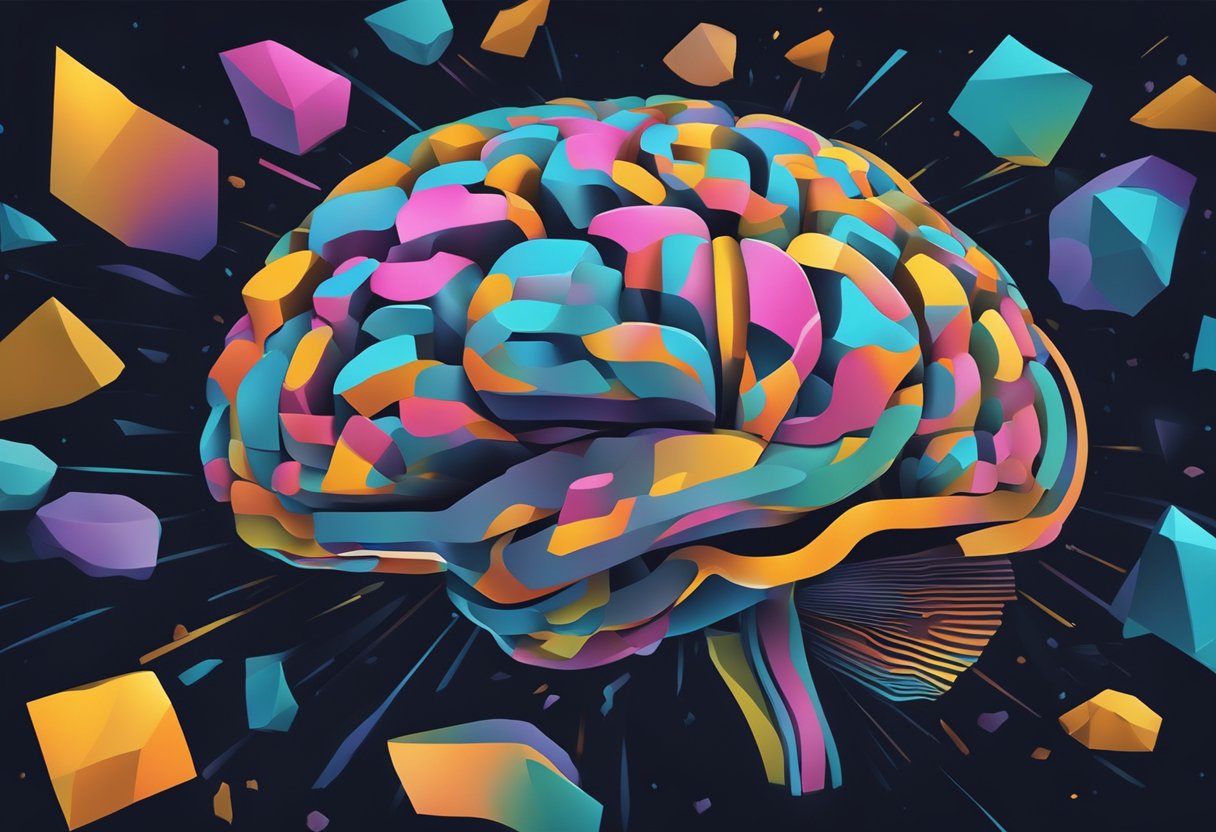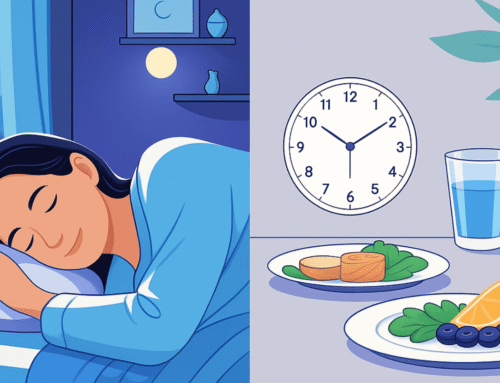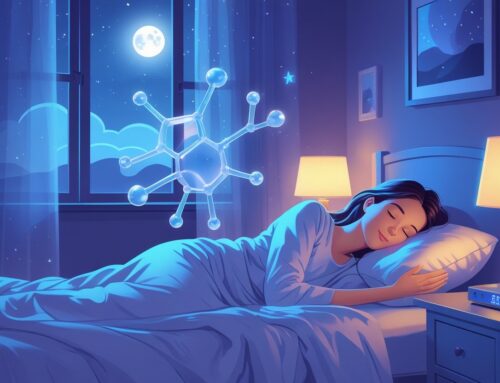Getting enough sleep is crucial for keeping your brain working at its best. When you don’t get the rest you need, it can seriously affect how you think, manage your emotions, and maintain your mental well-being. Lack of sleep can lead to anything from feeling a bit cranky to experiencing major cognitive difficulties, so it’s important to understand how insufficient sleep can impact your brain.
Studies have found that missing out on sleep can interfere with key brain functions like memory formation and emotional regulation. This may cause problems with learning, decision-making, and even lead to increased feelings of anxiety and depression. Knowing these effects can be helpful for anyone looking to stay mentally sharp, focused, and emotionally balanced.
There’s no denying the link between sleep and brain health. With our busy modern lives, making good sleep a priority can make a real difference in cognitive performance and overall productivity.
Key Takeaways
- Sleep deprivation can impair cognitive function and emotional health.
- Lack of sleep negatively affects memory and decision-making abilities.
- Understanding sleep’s impact is essential for improving overall brain performance.
- A high-quality mattress can contribute to better sleep, reducing the risk of cognitive and emotional issues caused by sleep deprivation.
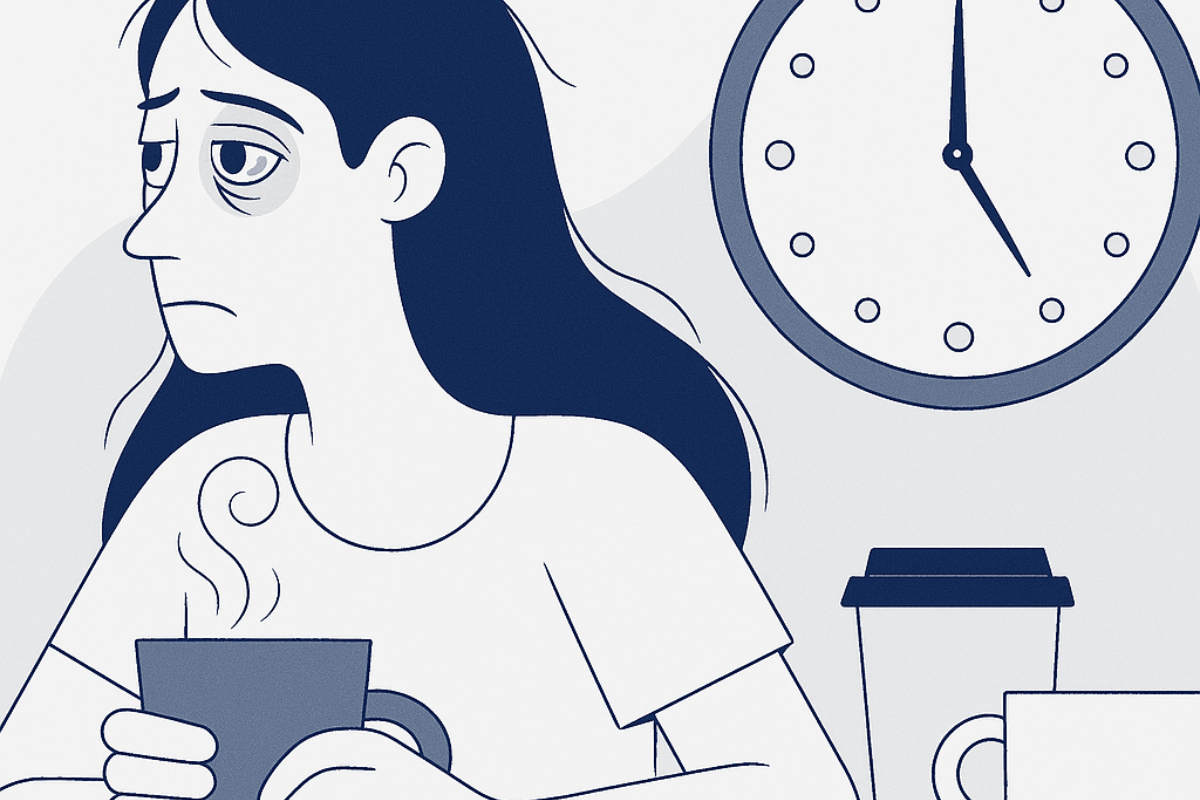
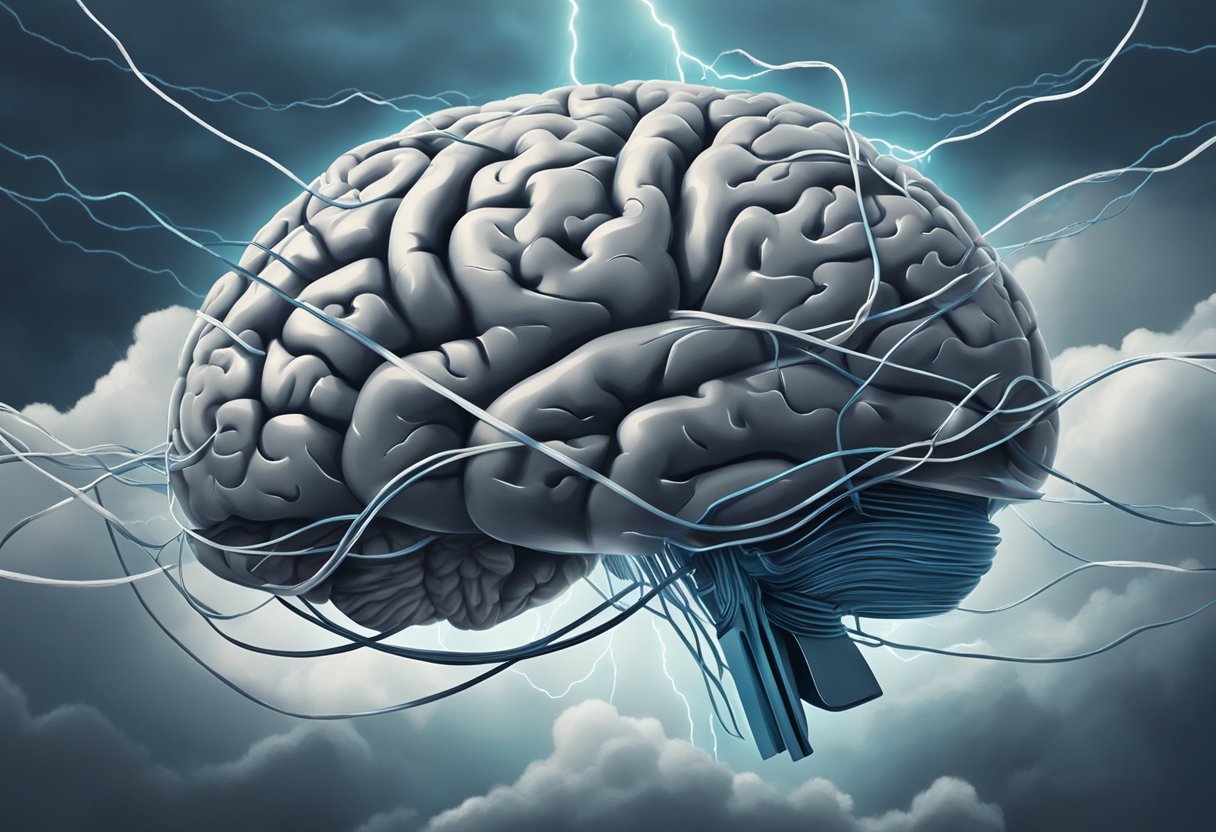
Sleep deprivation takes a toll on both the body and mind. It can lead to serious cognitive and emotional challenges. Understanding its causes and effects is key to maintaining better health and well-being.
Defining Sleep Deprivation
Sleep deprivation happens when a person doesn’t get enough rest, either due to not sleeping long enough or experiencing poor sleep quality. It can result from lifestyle choices, medical conditions, or even external factors. While adults generally need 7 to 9 hours of sleep each night, many people fall short of this recommendation.
A lack of sleep often leads to noticeable effects on the brain, including memory issues and reduced cognitive performance. Research shows that the hippocampus, the part of the brain responsible for learning and memory, is particularly affected. Without sufficient rest, it becomes harder to focus, recall information, and react quickly.
Causes of Sleep Loss
There are many reasons people lose sleep. Stress is a major factor, often causing anxiety that makes it difficult to unwind. Irregular work schedules, like night shifts, and too much screen time before bed can also interfere with sleep by reducing melatonin production — the hormone that signals it’s time to rest.
Additionally, medical conditions such as sleep apnea or chronic pain are common culprits of disrupted sleep. Mental health challenges, including depression and anxiety, often contribute to restless nights. Lifestyle habits like drinking caffeine late in the day or eating heavy meals before bed can also make it harder to get restorative sleep. Recognizing and addressing these factors can lead to better sleep and improved brain function.
Sleep deprivation has a significant effect on cognitive abilities, especially memory and creativity. Understanding these impacts is essential for maintaining mental clarity and supporting overall brain health.
Memory Impairments
Sleep is crucial for consolidating memories. During rest, the brain organizes and processes information gathered throughout the day. Without enough sleep, this essential process gets interrupted.
Research shows that sleep deprivation can lead to short-term memory issues, making it harder to remember names, facts, or recent events. The hippocampus — the brain’s memory center — is particularly vulnerable to the effects of sleep loss. As a result, absorbing and recalling new information becomes challenging.
Over time, chronic sleep deprivation may contribute to more severe memory problems. It doesn’t just affect immediate recall but also long-term memory retention. Getting quality sleep is key to keeping memory sharp and maintaining cognitive strength.
Impact on Creativity and Problem Solving
Lack of sleep can also diminish creativity and problem-solving abilities. Sleep encourages the brain to make connections between different ideas, often leading to innovative thinking. When sleep is cut short, this natural process is disrupted. Studies suggest that people who are sleep-deprived tend to develop a narrower perspective, making it harder to think creatively or solve complex problems. Without enough rest, the brain struggles to generate new ideas and explore different solutions.
Additionally, sleep deprivation often results in mental fatigue. This fatigue slows down cognitive processing and reduces the brain’s ability to tackle problems efficiently. For those looking to boost their creativity and sharpen problem-solving skills, prioritizing sufficient sleep is essential.
Not getting enough sleep can seriously affect the brain. Two major areas impacted are brain structure and neurotransmitter activity. Understanding these effects underscores why getting enough rest is so important.
Brain Structure and Sleep Deprivation
Sleep deprivation can change the structure of the brain. Studies show that a lack of sleep damages the hippocampus, a key part of the brain responsible for learning and memory. When people don’t get enough sleep, their ability to create and store new memories is compromised. This often leads to forgetfulness and difficulty focusing. In fact, research suggests that chronic sleep loss could even cause the brain to shrink over time.
Another major consequence of poor sleep is reduced brain plasticity — the brain’s ability to adapt and learn from experiences. When plasticity decreases, learning and creativity take a hit. This can lead to what’s known as “creative insomnia,” where problem-solving abilities and innovation suffer due to a lack of rest.
Sleep Deprivation and Neurotransmitter Activity
Sleep loss also disrupts the brain’s neurotransmitter activity. Neurotransmitters are chemical messengers that help nerve cells communicate. Without enough sleep, the balance of key neurotransmitters like serotonin and dopamine is thrown off.
These imbalances often lead to mood changes, including heightened anxiety, depression, and irritability. Low serotonin levels in particular are linked to an increased risk of mood disorders, making it harder to maintain emotional stability.
Sleep deprivation also interferes with hormones that control hunger and appetite. As a result, people may find themselves craving unhealthy snacks late at night, leading to potential weight gain. Recognizing how sleep affects neurotransmitter activity reinforces just how vital rest is for both mental and emotional well-being.
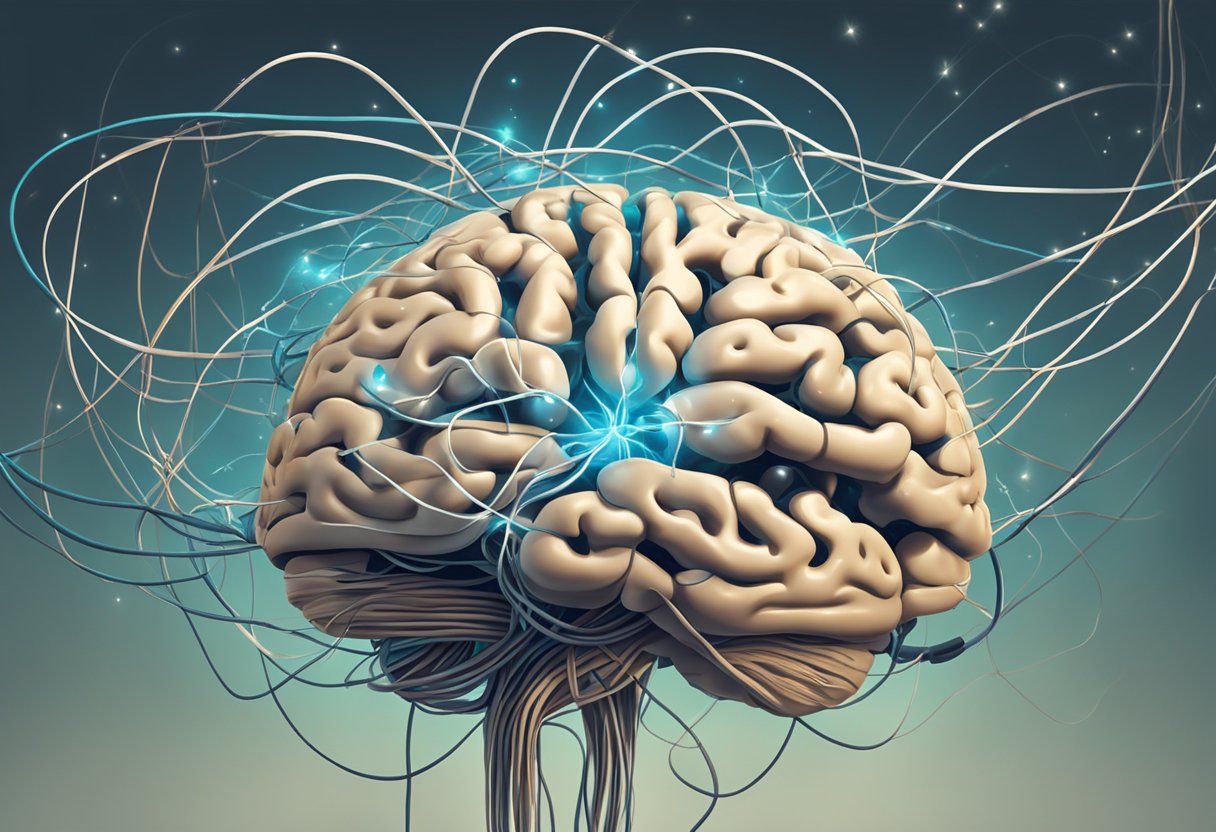
Sleep deprivation can deeply affect emotional stability and mental well-being. It often leads to heightened stress, increased anxiety, and a greater risk of mood disorders. Recognizing these effects is essential for tackling mental health challenges.
Mood Disorders and Emotional Regulation
Not getting enough sleep has a direct impact on mood. It tends to amplify negative emotions while dulling positive ones. As a result, people who are sleep-deprived often experience increased irritability and frequent mood swings.
Research has shown that poor sleep can worsen conditions like depression. This happens because the brain’s emotional control centers don’t function as well without proper rest. For example, the amygdala, which plays a key role in processing emotions, becomes overactive. This heightened emotional response can make it harder to regulate feelings and react calmly.
Sleep deprivation also impairs decision-making abilities. When tired, people may struggle to think clearly and respond rationally in emotionally charged situations. This can create a cycle where poor sleep fuels negative emotions, further disrupting sleep.
Stress and Anxiety
The link between sleep loss and stress is well-established. Chronic sleep deprivation often leads to increased anxiety levels, with many people feeling noticeably more anxious when they haven’t had enough rest.
Sleep helps regulate stress hormones, particularly cortisol. When someone is sleep-deprived, their body may produce excess cortisol, intensifying feelings of stress and anxiety.
Studies suggest that individuals with ongoing sleep issues are at a higher risk of developing anxiety disorders. This connection emphasizes how vital sleep is for emotional well-being. Without sufficient rest, managing everyday stressors becomes significantly harder.
Sleep is essential for brain plasticity, which is the brain’s ability to adapt and reorganize itself. Understanding how sleep deprivation affects this process is key to recognizing its impact on learning and memory.
Neuroplasticity During Sleep
While we sleep, the brain carries out important processes that support neuroplasticity. One of these processes involves strengthening and weakening synaptic connections, which are vital for learning new information and forming memories. However, research shows that not getting enough sleep disrupts these functions.
Sleep deprivation can negatively affect synaptic plasticity, especially in areas like the cortex and hippocampus. These regions are crucial for learning and memory formation. Without proper rest, the brain struggles to create and maintain connections, making it harder to absorb new facts or develop new skills. Additionally, sleep helps solidify memories from the day. Without sufficient sleep, this consolidation process is disrupted, leading to challenges in retaining information.
Long-Term Consequences for Brain Function
The long-term impact of sleep deprivation on brain plasticity can be significant. Chronic sleep loss can lead to lasting changes in brain structure and function, including reduced neurogenesis — the formation of new neurons.
Studies have shown that ongoing sleep deprivation can overstimulate the brain, increasing the risk of cognitive decline and neurological disorders. People may experience difficulties with memory, focus, and emotional regulation as a result.
In summary, poor sleep habits can severely hinder brain plasticity, ultimately affecting mental health and cognitive performance. Prioritizing consistent, quality sleep is essential for keeping the brain healthy and functioning at its best.
Research on sleep deprivation continues to show how it can severely impact brain function. Numerous studies have demonstrated how a lack of sleep affects cognitive abilities, mood, and overall mental health.
Analyzing Recent Findings
Recent research has found that sleep deprivation can lead to neurological damage, especially in the hippocampus, the brain region responsible for learning and memory. Studies suggest that poor sleep quality alters brain activity, making it harder to make decisions and solve problems effectively.
Additionally, insufficient sleep often contributes to higher levels of anxiety and depression. People who experience ongoing sleep deprivation frequently report feeling irritable and forgetful. In fact, one significant study showed that even a single night of poor sleep can lead to noticeable cognitive decline the next day.
Case Studies of Sleep Deprivation
Real-life case studies offer a clearer picture of how sleep deprivation affects individuals. In one example, a student experienced a sharp drop in academic performance after several nights of inadequate sleep. Along with struggling to concentrate, the student reported heightened anxiety and frequent lapses in memory.
Another case involved a shift worker who regularly dealt with disrupted sleep patterns. They reported mood swings, difficulty focusing, and overall cognitive impairment. These challenges made day-to-day tasks significantly harder to manage.
These real-world examples align with broader research findings, further emphasizing the importance of quality sleep. They serve as a reminder that maintaining healthy sleep habits is essential for both cognitive function and emotional well-being.
Addressing sleep deprivation involves finding ways to improve sleep quality and seeking treatment for any underlying sleep disorders. Both approaches can effectively reduce the harmful effects that poor sleep has on brain function.
Strategies for Improving Sleep Quality
Developing habits that encourage restful sleep is a key step in enhancing sleep quality. Here are some effective strategies:
- Maintain a Regular Sleep Schedule: Going to bed and waking up at the same time every day helps regulate your body’s internal clock, making it easier to fall asleep and wake up refreshed.
- Create a Comfortable Sleep Environment: A dark, quiet, and cool room is ideal for restful sleep. Investing in a quality mattress and pillows can make a big difference in your comfort and sleep quality.
- Limit Screen Time Before Bed: Reducing screen exposure from phones, tablets, or computers at least an hour before bed is important. The blue light from these devices can interfere with your body’s natural sleep cycle.
- Establish a Relaxation Routine: Calming activities like reading, taking a warm bath, or practicing meditation can signal to your body that it’s time to unwind and prepare for sleep.
- Mind What You Eat and Drink: Avoiding heavy meals, caffeine, and alcohol close to bedtime can prevent disruptions to your sleep. A light snack or herbal tea may be a better option if you feel hungry before bed.
Treatment Options for Sleep Disorders
If poor sleep is caused by an underlying sleep disorder, professional treatment may be necessary. Here are some common options:
- Cognitive Behavioral Therapy for Insomnia (CBT-I): This evidence-based therapy focuses on changing unhelpful thoughts and behaviors around sleep. It’s often highly effective for treating insomnia.
- Medications: In some cases, doctors may recommend short-term use of sleep aids. While they can help manage temporary sleep issues, they should be used with caution due to potential side effects.
- Sleep Apnea Treatment: For individuals with sleep apnea, using a CPAP (Continuous Positive Airway Pressure) machine can significantly improve breathing and reduce nighttime disruptions.
- Lifestyle Changes: Regular physical activity, managing stress, and cutting back on stimulants like caffeine can also support better sleep, especially for those dealing with sleep disorders.
By making these adjustments and seeking proper treatment when necessary, individuals can greatly minimize the effects of sleep deprivation on their brain health and overall well-being.
Sleep deprivation can have a significant impact on creativity and artistic expression. While some people believe that losing sleep can spark inspiration, research shows that it often does more harm than good, leading to reduced mental clarity and emotional instability.
Understanding Sleep Deprivation Art
Sleep deprivation art is a concept that explores how artists respond to the effects of inadequate rest. Many artists claim that sleeplessness fuels their creativity, resulting in bold and unique works. This belief often romanticizes the struggle, suggesting that creating meaningful art requires personal sacrifice.
However, scientific evidence paints a different picture. Sleep deprivation has been shown to impair cognitive functions, leading to lapses in attention and weakened problem-solving skills. Since creativity heavily depends on clear thinking and mental agility, a lack of rest can ultimately hinder the creative process rather than enhance it.
Influence on Artistic Processes
Sleep deprivation also alters the artistic process. When artists don’t get enough rest, emotional instability often follows, affecting both their motivation and focus. Heightened anxiety and a dip in mood can make it difficult to stay inspired and productive.
Additionally, creativity thrives on brainstorming and making complex cognitive connections. Poor sleep disrupts these abilities, making it harder to generate new ideas or refine artistic concepts. Studies suggest that sleep is essential for emotional regulation and fostering innovative thinking, further emphasizing the importance of rest for artists.
While some artists may feel creatively energized during sleepless nights, the long-term effects of inadequate sleep can take a toll. Ultimately, prioritizing quality sleep is essential for sustaining creativity, emotional balance, and overall artistic growth.

One of the most effective ways to combat sleep deprivation and its negative effects on the brain is to invest in a high-quality mattress. A supportive and comfortable mattress promotes restful sleep, helping to restore cognitive function and maintain emotional balance.
The Bear Original Mattress is an excellent choice for those looking to improve their sleep quality. Designed with advanced materials, including memory foam and cooling gel, it provides optimal support and temperature regulation throughout the night. This can be particularly beneficial for artists and creative thinkers who rely on sharp mental clarity and emotional well-being.
Additionally, the Bear Original Mattress is engineered to reduce pressure points, allowing muscles to relax and promoting deeper, uninterrupted sleep. By ensuring a comfortable sleep environment, it supports brain health and enhances the body’s natural recovery process — all essential for maintaining creativity and focus.
Investing in a mattress like the Bear Original can make a significant difference in combating the effects of sleep deprivation. Prioritizing sleep not only enhances mental performance but also nurtures the creative spirit, making it easier to pursue artistic goals with clarity and passion.

